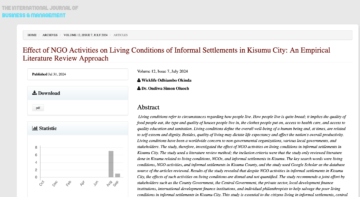
Irrigation farming is vital for food security in Malawi, but it also creates breeding grounds for vectors such as mosquitoes and snails, increasing the risk of malaria and schistosomiasis. This qualitative study, conducted under the Shire Valley Vector Control Project, explored stakeholder perspectives on vector-borne disease (VBD) control in irrigation areas. Findings show that Malawi lacks policies and coordinated strategies to manage VBD risks in irrigation schemes, with health and agriculture sectors often working in silos. The study calls for integrating vector control into irrigation policies and projects, adopting the One Health and Integrated Vector Management (IVM) approaches, strengthening entomological capacity, and ensuring dedicated funding for VBD control within irrigation investments.
Click here to access study
Related Publications





